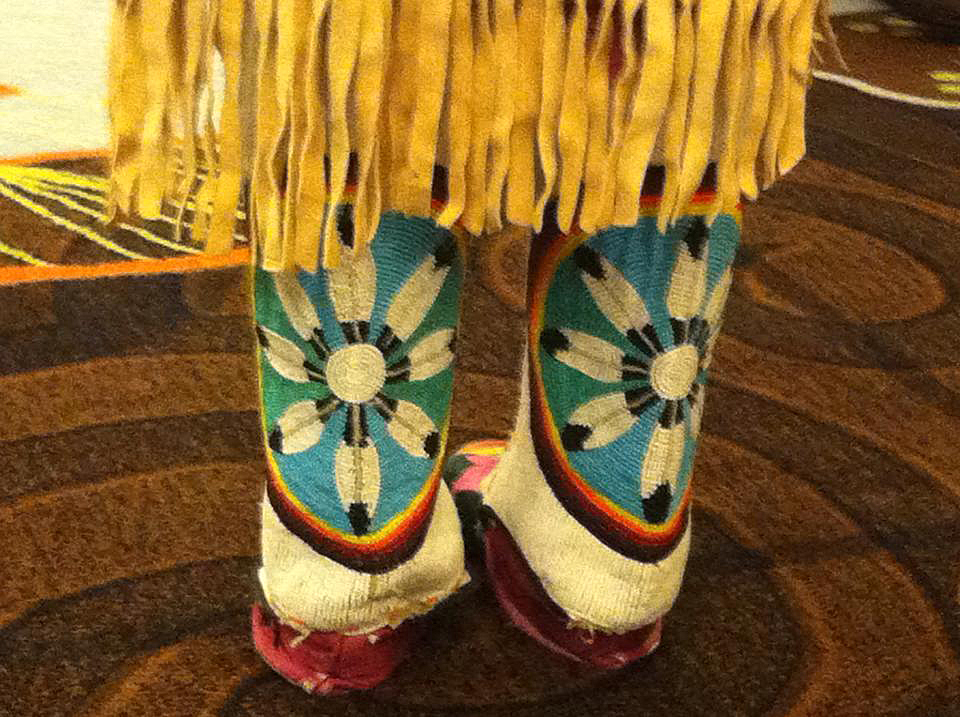By Dova Wilson
The second Monday in October has traditionally been celebrated as Columbus Day, but a growing movement is recognizing it as Indigenous Peoples’ Day. I looked for more information about how to understand this shift and the significance of the holiday from leadership for our AT&T Center for Indigenous Politics and Policy (CIPP), part of the College of Professional Studies at The George Washington University.
Wendy Helgemo, a member of the Ho-Chunk Nation and director of CIPP and Elizabeth Rule, a citizen of the Chickasaw Nation and assistant director of CIPP, contributed to this story.
Wendy Helgemo, a member of the Ho-Chunk Nation and director of CIPP
Elizabeth Rule, a citizen of the Chickasaw Nation and assistant director of CIPP
Q: The second Monday in October has traditionally been celebrated as Columbus Day. What has changed?
A: Columbus Day celebrates the “discovery” of the Americas in 1492 by Christopher Columbus, an Italian-born explorer. While it has been a federal holiday since 1937, the nature of his legacy has been controversial. His journeys triggered the era of mass European immigration to North America, and exactly what and whom he - and others - "discovered" - Indigenous people - is often another story that needs to be told.
While some still choose to celebrate Columbus Day, for others this day represents loss: loss of land, loss of culture, loss of language, loss of life.
Q: What is Indigenous Peoples’ Day?
A: A growing number of people recognize this date as Indigenous Peoples’ Day, a symbol of Indigenous respect, resilience and reclamation. We ask that you think about how pernicious the celebration of an infamous lost Italian can be to Native people. Think of the journey Native Americans have taken to survive a destructive colonial history to this day.
Q: Where is Indigenous Peoples’ Day officially celebrated?
A: Seattle, Minneapolis, San Francisco and dozens of cities, states and universities are taking steps to change the Columbus narrative and more accurately portray the history, plight and survival of Native Americans in this country.
Q: What are some examples of contemporary political and economic struggles faced by Native peoples?
A: There are many contemporary political and economic struggles faced by Native peoples that are rooted in settler colonialism and the genocidal past left in Columbus’s wake. Indigenous Peoples’ Day transforms this legacy of loss into acknowledgement of the trials faced by the Indigenous peoples of the United States and their resilience over the past 526 years.
- On the south side of Minneapolis, the “Wall of the Forgotten Natives” homeless encampment has grown to 300 residents, most of them Native American. With some facing drug addiction, at least three residents have perished in the last month and more than half a dozen have overdosed. City, county, state, community and tribal officials continue to grapple with ensuring families are safe and housed in the face of the coming Minnesota winter.
- On Cape Cod, the Mashpee Wampanoag Tribe is reeling from the U.S. Department of the Interior’s decision on September 7 to reverse its decision to place the tribe’s land into trust. This Termination Era-style ruling severely limits the tribe’s ability to govern, continue economic development and provide governmental services to its citizens. It is unclear whether the reservation will be dissolved entirely.
- In Seattle, an August 2018 report by the Urban Indian Health Institute and the U.S. Centers for Disease Control and Prevention found that 94 percent of urban, Seattle-based Native women had been raped or forced to have sex. Eighty-six percent also reported suffering from historical trauma.
- In Washington, DC, U.S. Supreme Court nominee U.S. Circuit Court Judge Brett Kavanaugh questions the constitutionality of Native Hawaiians’ status as Indigenous peoples. This position challenges the fundamental principles of Indian law: tribal sovereignty, the Indian Commerce Clause and self-governance. Kavanaugh’s opinions could pose a threat to Native Hawaiians, Alaska Natives and American Indians for generations to come.
Q: How do you suggest celebrating Indigenous Peoples’ Day?
A: This day becomes an opportunity to learn and share a new narrative that reflects a truth that has for too long been marched upon. This day becomes a call to justice, for all of us, to be a part of a story that not only strengthens, but also brightens and celebrates, our vibrant social fabric.
Be a part of this truth-telling about the Native peoples of this land, and join with the countless others, Native and non-Native, who are ready for this healing to begin.
Follow the Center for Indigenous Politics and Policy on Twitter @GWCIPP.




